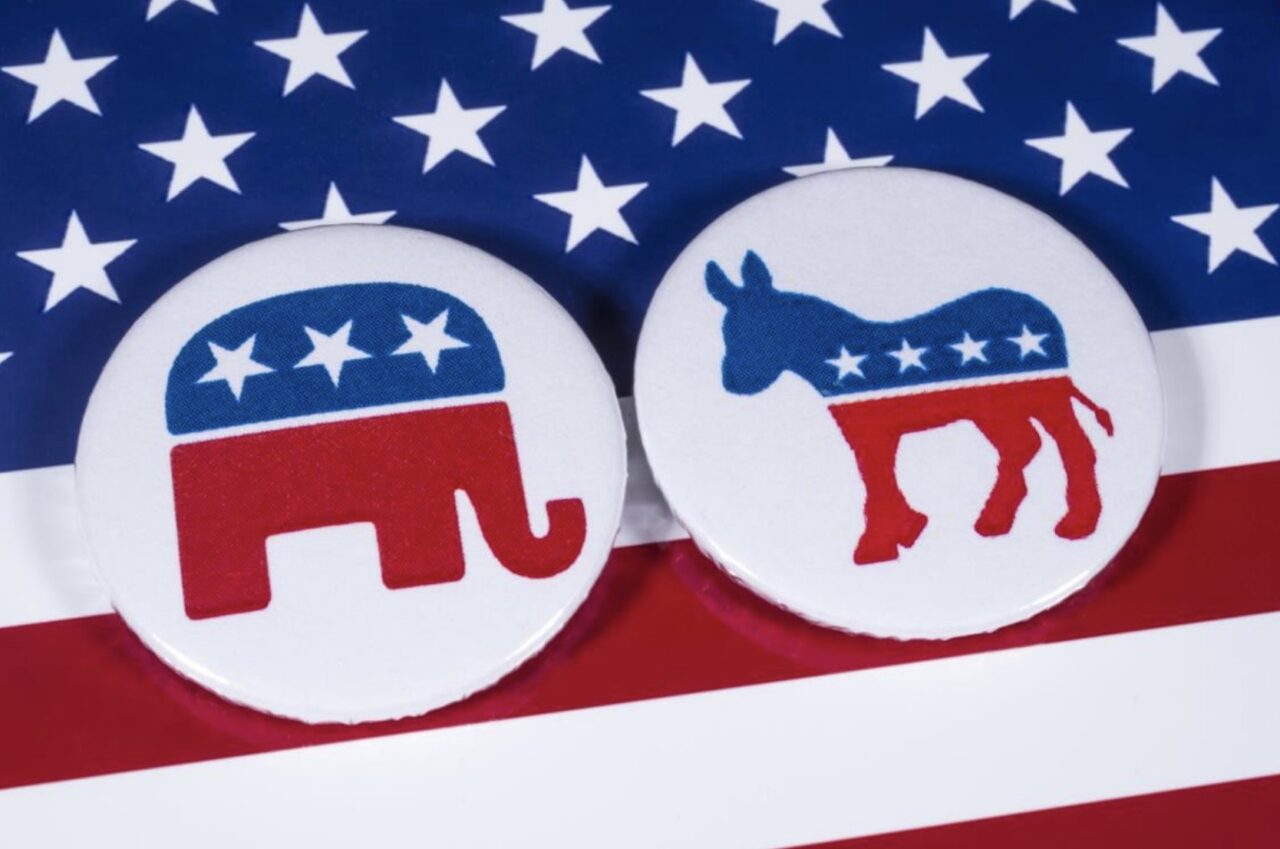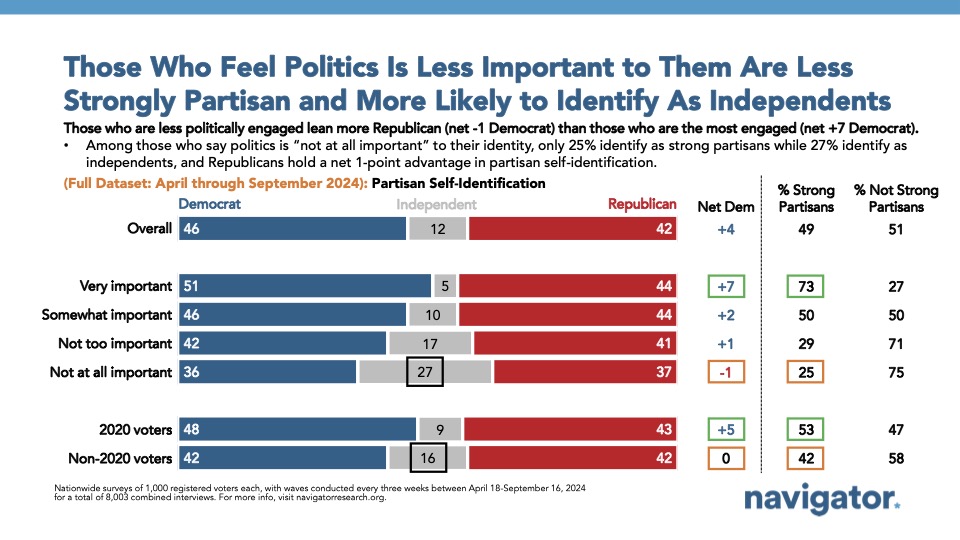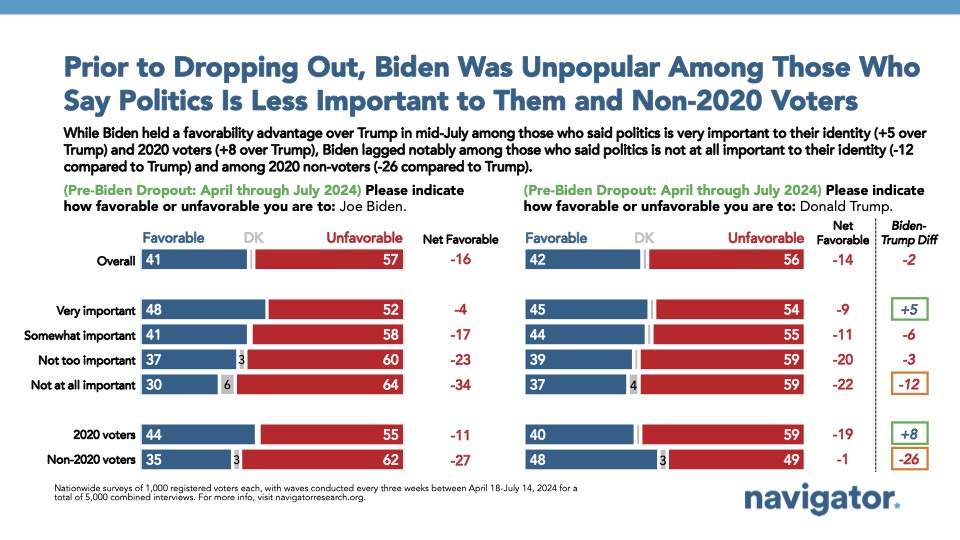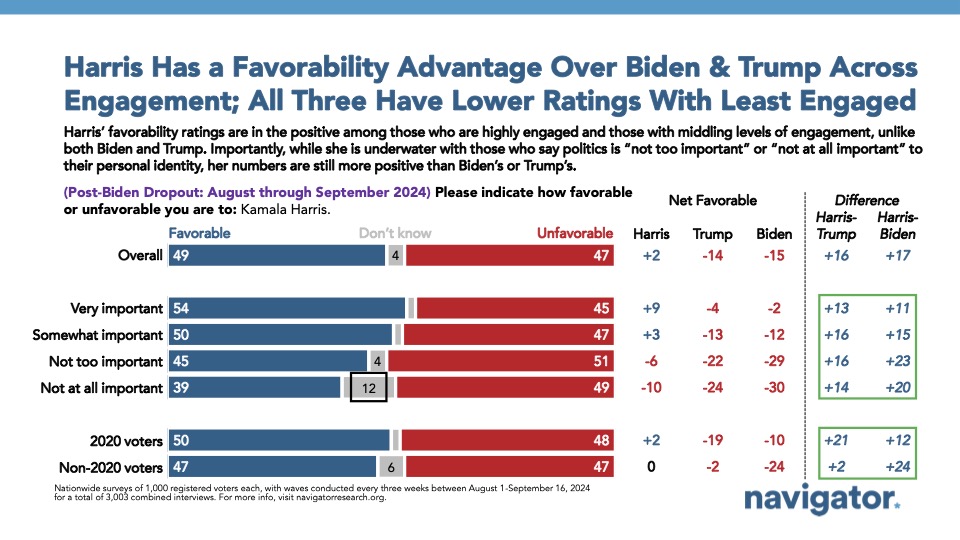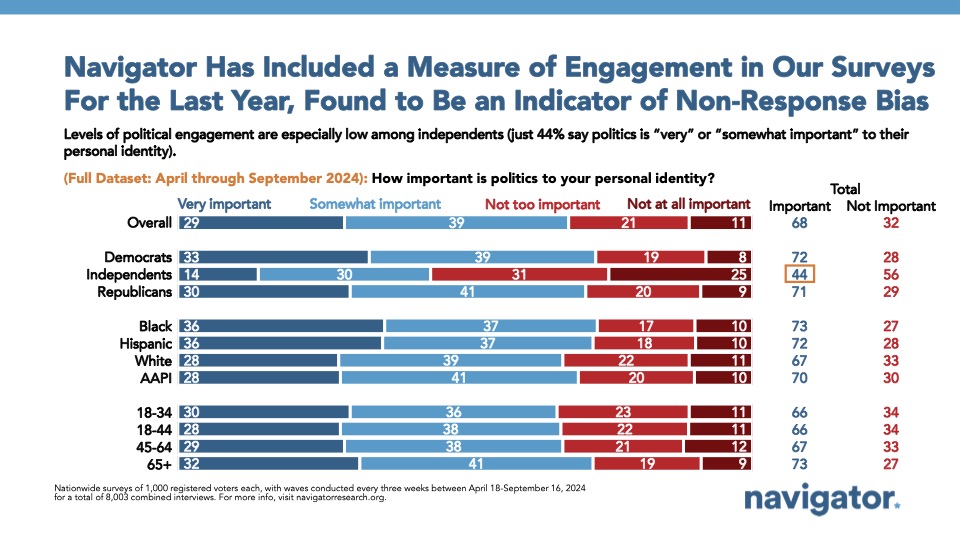Poll: Political Engagement in the U.S.
This Navigator Research report contains analysis from data collected over the last year measuring political engagement, specifically the importance of politics to personal identity and where those across engagement fall on the partisan spectrum and view elected officials.
Americans who are less engaged with politics tend to be less likely to respond to surveys.
When people who say politics is not important to their identity think or feel differently than people for whom politics is an important part of their identity, it introduces non-response bias to survey samples and can affect the accuracy of survey results—Navigator surveys include a measure of political engagement to mitigate this risk. An analysis of interviews collected between April and September (for a combined 8,000 interviews) reveals that those who say politics is very important to them identify as Democrats by an 8 point margin (51 percent Democrat – 43 percent Republican – 6 percent independent). Among those who say politics is not at all important to them, Republicans hold a 3 point advantage in partisan self-identification (35 percent Democrat – 38 percent Republican – 27 percent independent). Those who fall somewhere in the middle who say politics is “somewhat” or “not too” important to their identity narrowly identify as Democrats more than Republicans (net +2 and net +1, respectively).
- Americans who did not vote in the 2020 election identify as Republicans by 1 point (41 percent Democrats – 42 percent Republican – 17 percent independent), while those who did vote in 2020 are 5 points more likely to be Democrats (48 percent Democrat – 43 percent Republican – 9 percent independent).
Among lower engaged Americans, Vice President Kamala Harris has a favorability advantage over both President Biden and former President Trump.
Harris’ favorability ratings are positive among those who say politics is “very” or “somewhat” important to them (net +10; 54 percent favorable – 44 percent unfavorable), while Trump (net -6) and Biden (net -1) are underwater. Trump and Biden are also underwater among those who say politics is “not too” or “not at all” important to their identity—specifically among those who say politics is not at all important—Biden is underwater by 35 points and Trump is underwater by 21 points, while Harris is underwater by 14 points.
Those who say they don’t know whether they view Harris favorably or unfavorably are larger among the cohort who say politics is not at all important to their identity (12 percent). Among those with lower engagement, just 6 percent don’t know how to rate Biden and 4 percent don’t know how to rate Trump.
Independents are significantly more likely to say that politics is not important to their identity.
Just 45 percent of independents say politics is “very” or “somewhat” important to their personal identity, compared to 73 percent of Democrats and 71 percent of Republicans who say the same.
White Americans (67 percent) and Asian American and Pacific Islanders (69 percent) also report lower engagement than Hispanic and Black Americans (73 percent and 72 percent, respectively).
Two in three Americans under the age of 35 report politics being important to their identity (66 percent), compared to three in four Americans over the age of 65 (73 percent).
